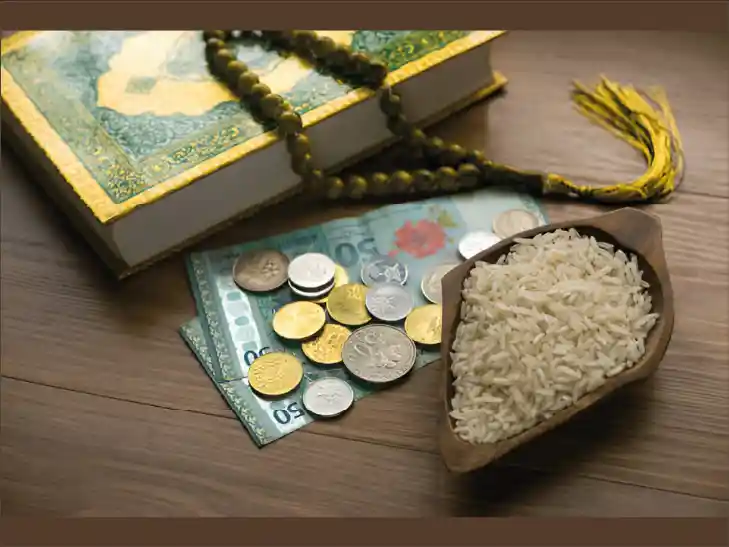Nobody truly knows what is Shirk in Islam (Here’s Truth)
Shirk is a major sin in Islam, which means associating a partner with Allah. According to the Quran and Hadith, shirk is extremely grave, so Muslims must understand what is shirk in Islam and how to stay away from it.
According to the Prophet Muhammad (peace be upon him), “To associate partners with Allah is the gravest sin” (Sahih Bukhari Hadith 5976).
Definition and Types of Shirk
What is shirk in islam? To clearly understand the concept of shirk first, we have to know what is shirk means in Islam. The word shirk is basically derived from the Arabic root word “sharika,” which means to share or associate. This term specifically refers to associating anyone or anything with Allah in the worship or divinity of Allah. It is further broken down into three types:
1. Shirk al-Akbar (Major Shirk):
Major shirk refers to the direct worship of other deities next to Allah or attributing divine qualities to others. It is extremely prohibited in the Quran: Let’s see what Allah says in (Surah-An-Nisa verse 4:48)

2. Shirk al-Asghar (Minor Shirk):
This type includes actions that can lead to major shirk. An example of a minor shirk is swearing or taking an oath of something other than Allah or showing off in religious deeds.

To know more about what is shirk in Islam, there are some further types of minor shirk:
- Wearing an amulet for protection.
- Hanging something in the home for protection from the evil eye.
- Going to other dead people’s graves and asking them for goodness in life.
3. Shirk al-Khafi (Hidden Shirk):
This is the last and most common type of shirk in today’s Muslims. One can commit this sin through actions and intentions such as relying on other than Allah in one’s heart, doing good deeds just to show off, or having inner doubts about His supremacy.

Finding hidden shirks is very hard for people, as Prophet Muhammad (P.B.U.H) describes it as “subtle, as a black ant crawling on a black stone on a dark night.”
Muslims must understand the following three types of shirk to understand better what is considered shirk in Islam.
Quranic Verses on Shirk (Popular Ayats)
What is shirk in islam in the light of quran? To understand what is the sin of shirk in Islam, Allah Almighty reveals a lot of ayats in the Quran. Here are some of them.
Surah An-Nahl Ayat 20-21
“وَٱلَّذِينَ يَدۡعُونَ مِن دُونِ ٱللَّهِ لَا يَخۡلُقُونَ شَيۡـٔٗا وَهُمۡ يُخۡلَقُون”
“And those they invoke other than Allah create nothing, and they [themselves] are created.”
“أَمۡوَٰتٌ غَيۡرُ أَحۡيَآءٖۖ وَمَا يَشۡعُرُونَ أَيَّانَ يُبۡعَثُونَ”
“They are, [in fact], dead, not alive, and they do not perceive when they will be resurrected.”
Surah Fatir Ayat 22
“وَمَا يَسۡتَوِي ٱلۡأَحۡيَآءُ وَلَا ٱلۡأَمۡوَٰتُۚ إِنَّ ٱللَّهَ يُسۡمِعُ مَن يَشَآءُۖ وَمَآ أَنتَ بِمُسۡمِعٖ مَّن فِي ٱلۡقُبُورِ”
“And not equal are the living and the dead. Indeed, Allah causes to hear whom He wills, but you cannot make hear those in the graves.”
Hadith on Shirk (Prophet P.B.U.H Words)
Many hadiths mention the prohibition of shirk and its consequences after death. Let’s see what the Prophet (P.B.U.H) Says about Shirk.
Abdullah narrates that I hear Prophet Muhammad (peace be upon him) saying,
“Whoever dies while still invoking anything other than Allah as a rival to Allah will enter Hell” (Sahih Bukhari Volume 6, Book 60, Number 24).
Another hadith states from Jabir ibn Abdullah (may Allah be pleased with him): I heard the Messenger of Allah (P.B.U.H) saying that:
“He who meets Allah without ascribing anything to Him will enter Paradise, and he who meets Him ascribing anything to Him will enter the Fire” (Riyad as-Salihin 414).
Conclusion of Shirk Concept
All Muslims must be aware of what is shirk in Islam because it is a major sin that Allah doesn’t forgive. We have clearly mentioned different types of shirk and some well-known Quranic verses, this is your time to find road2janna by staying away from them.
Furthermore, we also talk about what is the punishment for shirk in Islam from a hadith point of view. The author encourages believers to maintain pure Tawhid and protect themselves from the gravest sins in Islam.
References:





